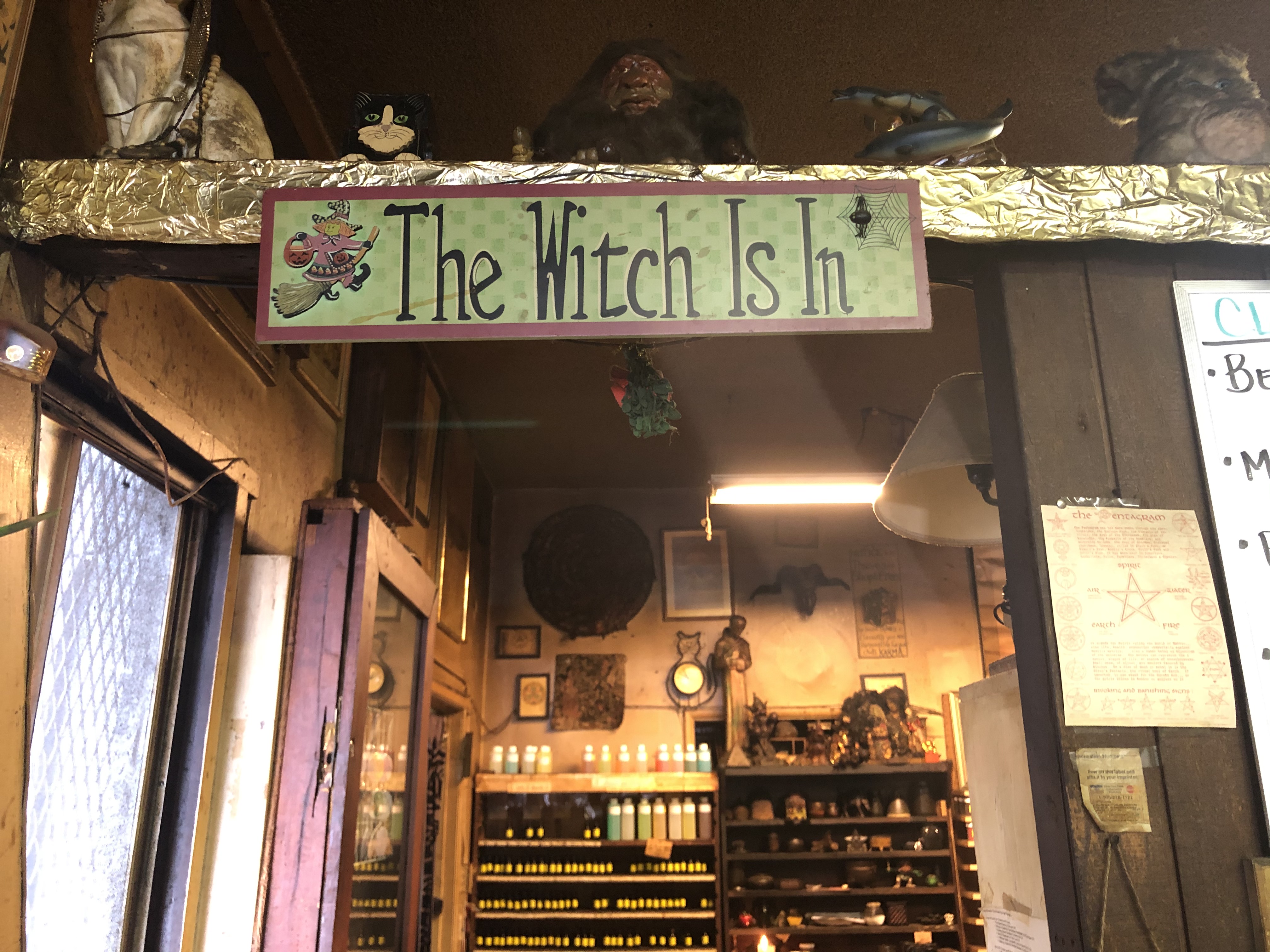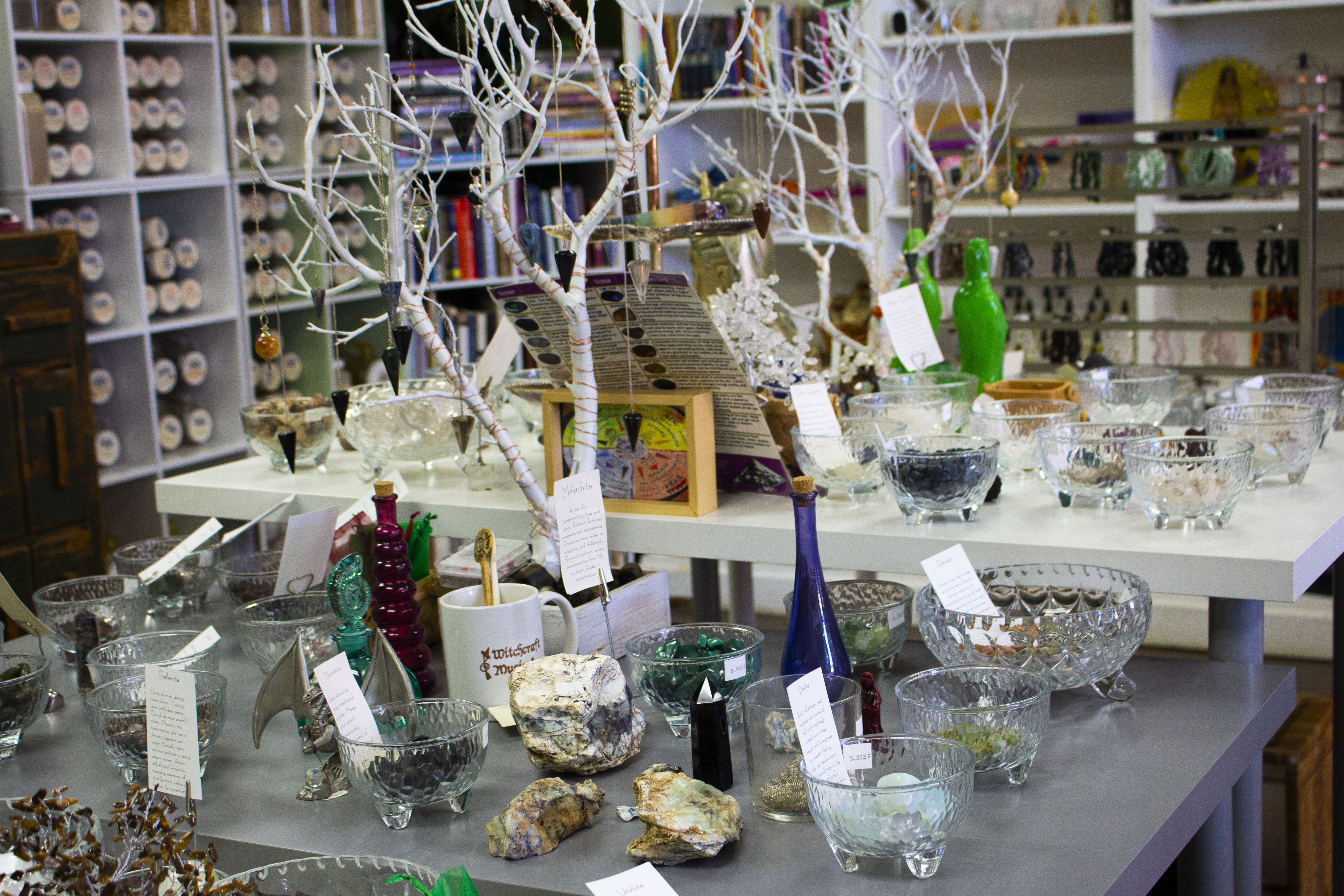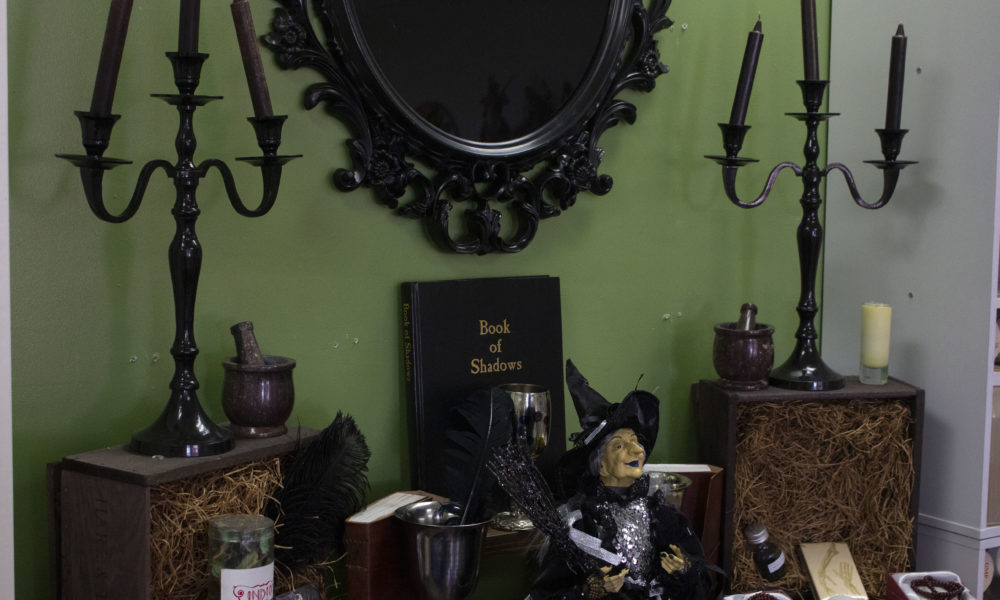By Mercedes Cannon, Rachel Hanna and Alexander Zepeda
Dark rituals and hexes come to mind when Wicca is mentioned for many, but Wicca is the belief that all people are connected to nature. It originated from indigenous practices in Wales, Scotland and Ireland.
Today, people that practice religion are more reserved about it.
Enlarge

Rachel Hanna / Daily Forty-Niner
According to Long Beach State religious studies professor Sophia Pandya, Wicca is a life-affirming spiritual tradition related closely with nature. Contrary to some beliefs, it isn’t Satanism.
“[Satanism is] a group of atheists that believe that knowledge should be the most important thing in the world and that we should all pursue knowledge…they’re actually not really worshipers of evil,” she said.
Pandya added that a witch was a woman who was a faith healer and used plants to heal, or she was a midwife.
“If we saw the practices, we wouldn’t think [that those women were] trying to access evil forces of the world to hex somebody,” Pandya said. “That’s not what they were doing.”
Instead, Wiccans are strong believers in doing no harm. They value characteristics like mirth, hospitality, strength, liberty and compassion.
Enlarge

Mercedes Cannon / Daily Forty-Niner
Judy Johnson is a practitioner at Practical Magicka. She also identifies as Rosemary Moon, a name that plays off her favorite herb and the alignment of her zodiac sign.
To her, being Wiccan is simply a preferred way of living.
“Wicca is the modern version of the pagan lifestyle,” Johnson said. “I don’t like to say I’m Wiccan because I don’t like the thought of religion. I like to say that I’m of the earth. I try to do good to the earth and protect the earth.”
Wicca practitioners have tools that assist them in their art. “The Book of Shadows” is considered by Johnson as a witch’s journal and can contain spells.
“That’s where you want to put all of your recipes, or anything you have relating to the craft,” Johnson said. “You can [cast spells on] any of your personal stuff,[like] your car, your home…that’s the first thing you do when you get something new. You put a protection over it so that no negativity ever comes to it.”
Matt Campuzano, a practitioner of the Wiccan faith, was raised Catholic. When he ventured into this new set of beliefs, his parents thought he was opening up portals in their home, even though he was casting peaceful spells.
Enlarge

Mercedes Cannon / Daily Forty-Niner
Witches believe in the Law of Three, which dispels myths of black magic. According to Wicca Living, the rule implies that for every magical action sent through the universe, it will return three times as powerful.
“I’m all about Karma,” Johnson said. “I don’t wanna step on a bug because then my car is gonna get pooped on!”
Pagans celebrate eight sabbaths that are influenced by the four solar festivals. Whether it’s celebrating the dead or new beginnings, each sabbath has its own individual meaning.
The one most commonly known is Samhain, or Halloween, which is considered the “Witch’s New Year.”
“[Samhain] is about getting back in touch with loved ones when they’ve passed,” Johnson said.
As someone who involves herself with the Wiccan culture, Johnson is OK with sharing her identity to the public, but only tells people when asked.
“I’m not a confrontational person, so I’m not gonna try to tell you I’m a witch,” she said. “I’m not interested in others’ opinions, so I usually don’t advertise.”




